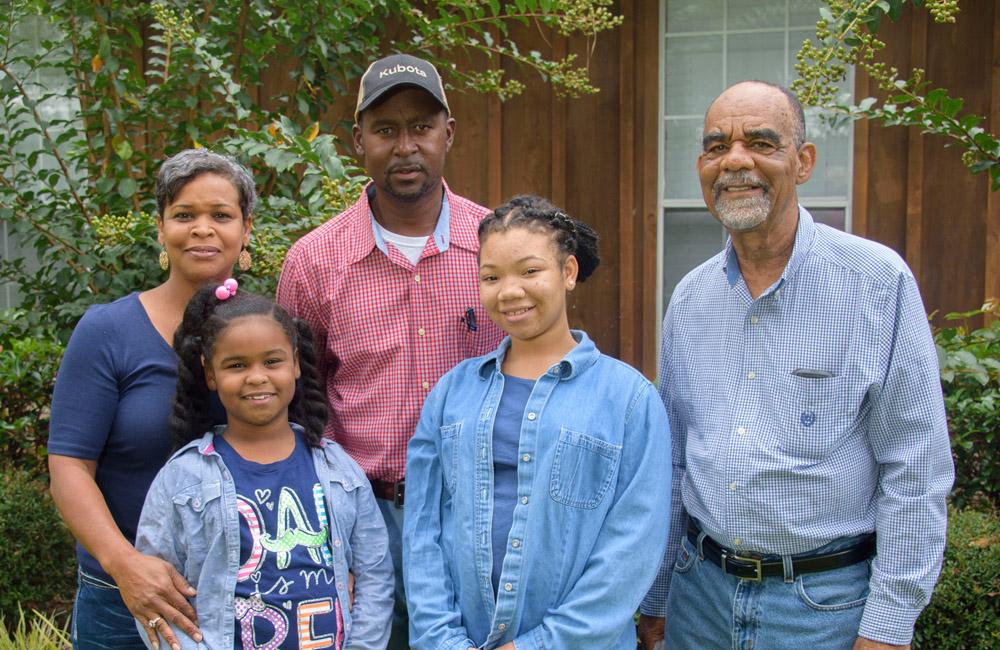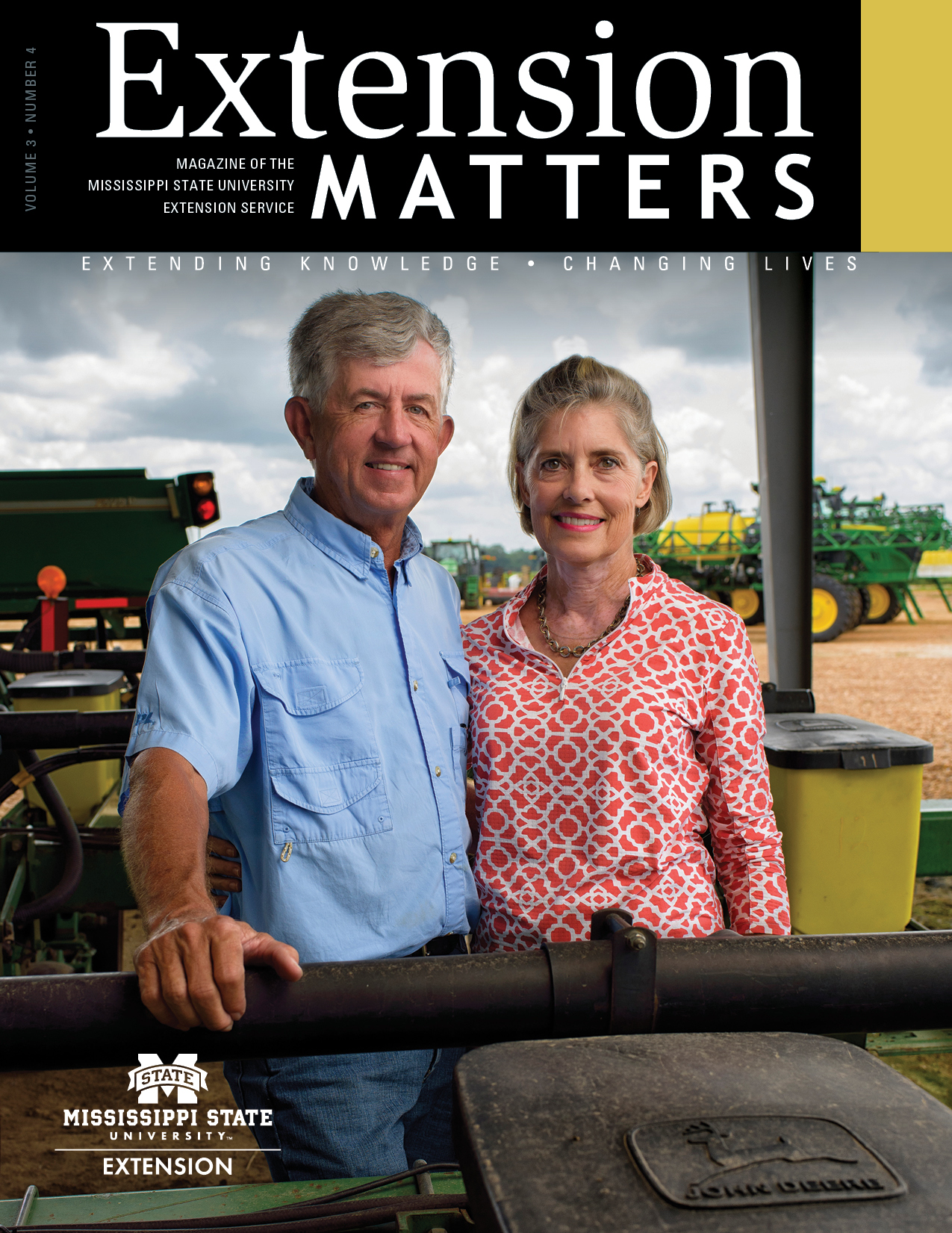Making a Difference

Cattleman Speaks to Generations of Extension Impact
Story by Leah Barbour • Photos by Kevin Hudson
The people who know Virgil Walker look up to him. The Covington County native is a leader for his church and several local organizations. He loves his wife, his children, and his grandchildren, and he values his way of life.
“It’s just in my blood to walk out and see a cow on my farm,” he says on a humid, late-summer afternoon. “It’s five generations, counting my son’s kids. The one who’s 9 or 10, I gave her a calf, and she wants to come every day to look at it. I believe she’ll be the one to come and live on the farm. It would be rewarding for me. Where I’m living, I’ve been here for 50 years.”

The Mississippi State University Extension Service has been around all that time and even before, Walker remembers. When he was in high school, he kept feeder pigs, and he recalls agents coming out to his place to look at them. When his dad discovered insects attacking his pines, the Extension agents came to the farm to inspect the timber.
“Anything that was going on at the farm, they would come out. We would look to Extension for their input,” Walker says. “People who’ve got hundreds of acres, people who’ve got a few—I tell you, Extension is going to get it fixed. And they’re going to come back and make sure your problem is fixed.”
Like many other commercial stocker producers around the state, Walker mostly buys fall-born calves weighing around 600 pounds. Because their frames are larger and their weights are heavier than spring calves, they rely on grazing hay through the short Mississippi winter until high-quality forage comes available. Cattle are sold the following summer when they’ve reached about 1,000 pounds.
Most recently, Walker participated in an herbicide-application certification program led by local Extension agents. He emphasized the importance of using only the “right” chemicals—ones that won’t harm his cattle or his fishing ponds. Being certified protects him as a cattle producer; the animals can be tracked if needed.
“They’re happy to come out and advise you what to spray,” Walker observes. “If I’ve got a question about the cattle, Ellen (Russell) is here for me. She’s a really hands-on person. She tells us about the Cattlemen’s Association, the programs out there for us. She tells us if she’s got anything in her office that would be beneficial to us. She’ll find you the help you need if she can’t help you.”
In some ways, diversification is Walker’s way of life. Along with keeping up with the herd, he volunteers with the local fire department, teaches Sunday School at the church where he’s a deacon, and delivers input on the Cattlemen’s Association and Farm Bureau boards.
Walker also grows and cuts more than 100 acres of hay adjacent to the land where his approximately 80 head of cattle forage in Dry Creek, a few miles outside Mt. Olive. Though he’s now retired from a decades-long career as an electrician, Walker continues his partnerships with fellow cattle producers, the Covington County Cattlemen’s Association, and Extension.
“Thank God we got the Extension Service in our town,” he laughs. “They have educational programs that you can look at about how to improve your farm life. The Extension Service: it’s just there if you need it. They always been mighty good to help you improve what you’ve already got, and it can be the difference between profit and not.”
Making It Happen
To make the community the best it can be, people must be willing to work together, and Virgil Walker has spent a lifetime linking his own success to the people around him.
“‘The community’s only as strong as the people who live in it.’ That’s what my dad said,” Walker explains. “‘Always be willing to give your neighbor a hand.’
“I got a lot of my learning from him and from the Bible, and, back in those times, that’s how they survived—by helping each other. That’s what it takes: help to get you where you’re at, and then, you’ve got to turn around and help somebody else.”
Walker’s community roles enable him to share resources in a variety of ways:
- He opens up his acres to kids who’ve never visited functioning farms.
- He ensures volunteer firefighters have the equipment they need to save lives and remain safe themselves.
- He counsels teens who are considering dropping out of school.
- He assists neighbors with their farming needs, including baling hay or vaccinating cattle.
- He grows fruits and vegetables that he shares, free of charge, with members of the community.
- He helps coordinate the annual Covington County blood drive.
- He shares his life experiences and knowledge on numerous community advisory committees, including the county’s Farm Bureau Board, its 4-H Advisory Council, and its Cattlemen’s Board.
- He serves on councils and committees at Macedonia Missionary Baptist Church in Mt. Olive and other local churches.
“Being retired, instead of working on the job, I have more time to help people that need help and help more in the community,” Walker affirms. “Doing something good in your neighborhood is rewarding because you can always see your work.”


